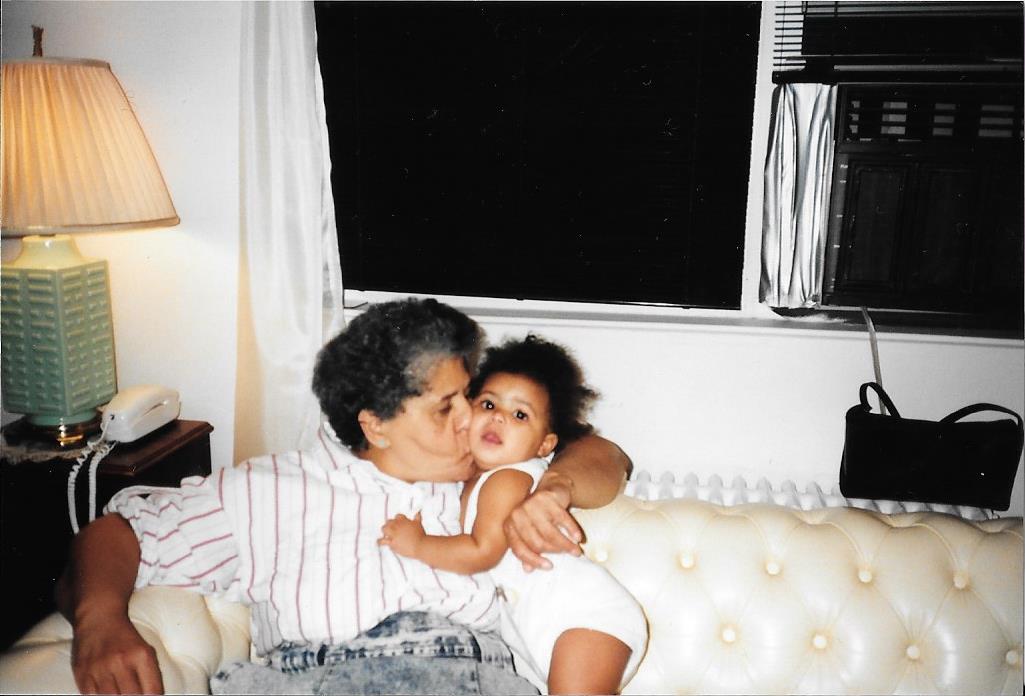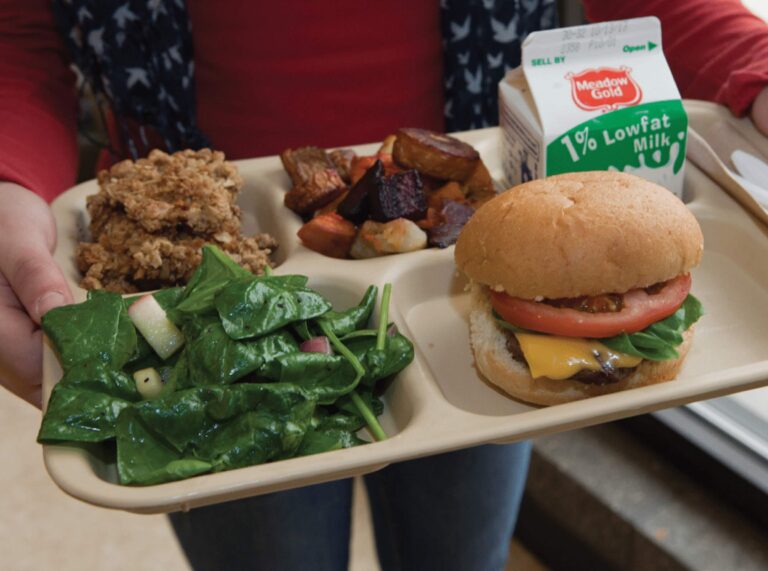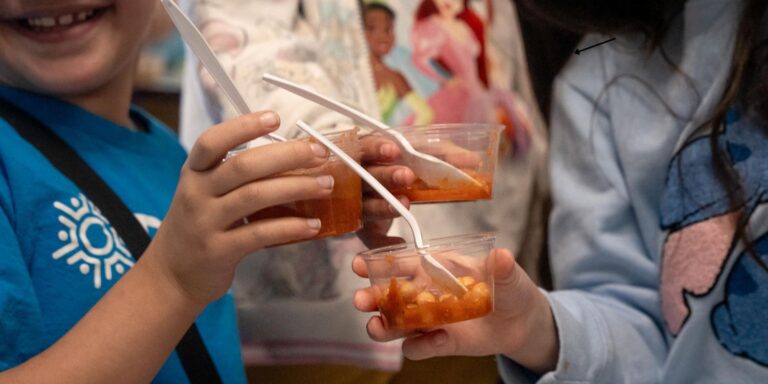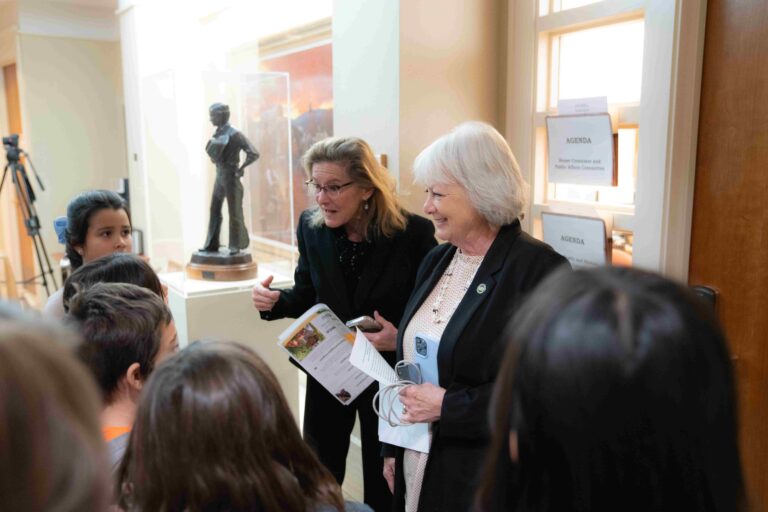Serving My Latine Heritage in the Brooklyn Community
“For me, being Latina is about feeling like a part of a greater community and taking pride in who I am.”
Join our corps! Applications for 2026-2027 are now open. Apply by March 30.
“For me, being Latina is about feeling like a part of a greater community and taking pride in who I am.”

This post was written by FoodCorps alum Paloma Jones, who served in New York in 2018-2020, while she was a service member.
When I think about what it is to be someone of Hispanic and/or Latine heritage, I think of the word latinidad, which is loosely defined as shared qualities of those with roots in Latin America. Latinidad is present more obviously in shared customs, holidays, and foods, but it’s also present in more subtle ways, such as shared struggles and experiences. For me, the true spirit of latinidad and identifying as Latine is that of overwhelming pride in where you come from.
I consider myself multi-ethnic with roots tracing back to the Caribbean, Europe, and South Asia (according to family stories and further verified by an at-home ancestry kit). However, I can easily say I feel the strongest connection to Panama, the Central American country where my grandma was born. As a young girl, she left home and was sent to live here in the U.S., where she lived with her aunt and uncle in Harlem, and where she resided until she got married and moved to East New York in Brooklyn; she later moved to Long Island where she raised my mom and is now happily retired in the Poconos.
There were many things she had to do to assimilate here, such as being allowed to speak Spanish only in the house. She also did not have a lot of family around, since when first arrived here the majority of her family was still in Panama and it was not until many years later that some of her siblings also emigrated here, most making a home in Bushwick. But nevertheless, she held strong to her cultural ties from back “home,” as she still calls it, and she instilled that in her grandchildren. For many who identify as Hispanic or Latine, being able to speak Spanish is a big part of that identity.
While my grandma did try to pass that along, I will regrettably admit that while speaking Spanish is not my greatest strength, I am quite adept at Spanglish. My struggles with speaking fluent Spanish evoke a variety of emotions, like embarrassment about my accent or when I take too long to find the right word, but most often I felt like I was not Latina enough. However, over time I have come to realize that my identity as Latina is more than being able to speak perfect Spanish.
Instead I consider my experiences that are inextricably tied to Latine identity and how those have shaped who I am. I think about the family gatherings, full of salsa and soca (a genre of music similar to reggae that is popular in the Caribbean and parts of Latin America), that always felt like a party, and which also often occurred at my favorite aunt’s house right here in the neighborhood where I am serving with FoodCorps.
I think about how I talk with my hands but point with my mouth. I especially think about some of my favorite foods, arroz con gandules (rice and peas), bacalaitos (codfish fritters), and yucca, which are unsurprisingly some of my grandma’s specialties that remind her of home and feel like home for me, too. I think about how growing up I dreaded when they took attendance in school. Paloma, which means dove, proved a challenge for many people, especially for non-Spanish speakers, and many times I wish I had an easier name, something that wouldn’t sound so unnatural when spoken. But I am finally growing to like and appreciate my name, as it makes me who I am and is major to the space I take in this world as a Latina.
A big part of what drew me to FoodCorps was the opportunity to work with kids who can relate to me and hopefully see some of themselves in me. In my time as a student, I did not always have teachers who looked like me. It cannot be said enough, but representation is important, especially when it comes to both education and health; therefore one of my hopes for this year of service is that my students will be able to see me as a role model.
I want to make sure that their names are important to their identities and backgrounds, and that they are not a burden or too difficult to pronounce. For me, being Latina is about feeling like a part of a greater community and taking pride in who I am. These are values I wish to instill through my time with FoodCorps. I am looking forward to a year of learning and sharing stories over food. And I have my fingers crossed that my students will help me work on my Spanish.

3 Reasons We Need School Meals for All

Mindful Tasting: Eating with All 5 Senses

Our 2025 Child Nutrition Policy Year in Review